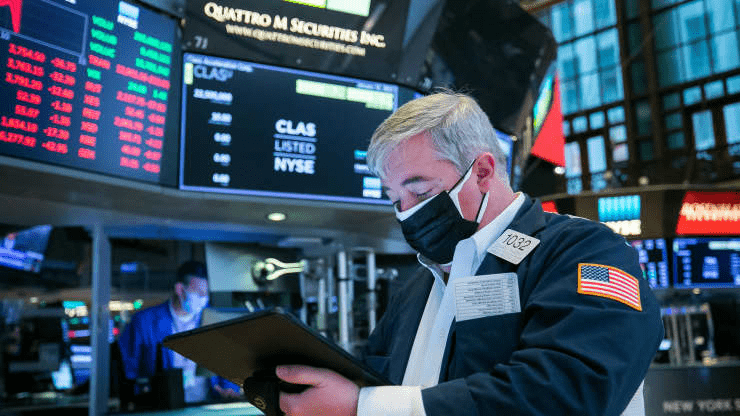Pricey U.S. stock valuations put burden on earnings to keep rally going
January 20, 2021 @ 11:59 +03:00
U.S. corporate results and profit outlooks are becoming increasingly important in sustaining investor optimism in a stock market rally that has driven valuations close to a 20-year high. With fourth-quarter reports starting to pour in, the benchmark S&P 500 is trading at 22.6 times earnings estimates for the next 12 months, according to Refinitiv Datastream. That price-to-earnings multiple (P/E) — a common benchmark for valuing stocks — is well above the 15.3 long-term average and has been climbing since the market bottomed in March.
Investors’ rationale for the historically high valuations has rested on expectations of a growth bounce as the economy emerges from COVID-19 shutdowns, massive fiscal and monetary support, and equities’ relative attractiveness to bonds. But with the S&P 500 up about 70% from its March lows, the earnings season could present an important test of whether the rally has run ahead of fundamentals, a key worry of investors who believe unparalleled fiscal and monetary spending have fueled excessive risk-taking.
Stock “return expectations are greatly dependent on the earnings rebound in 2021,” said Chris Haverland, global asset allocation strategist at Wells Fargo Investment Institute. S&P 500 company earnings are expected to rise by 24% in 2021 after falling 15% in 2020, according to Refinitiv data as of Friday, with reports that could shed light on prospects for 2021 starting to come in more heavily this week.
So far, results have been stellar: Of the 26 S&P 500 companies that had reported as of last week, 88% beat fourth-quarter earnings estimates, a rate tracking to be “one of the strongest in history,” BofA Global Research said in a note on Tuesday.
Among those recently reporting was Goldman Sachs Group Inc, which posted a blockbuster fourth-quarter profit on Tuesday. Goldman executives warned, however, that the capital markets activity that fueled results lately will probably slow down.
Investors also hope the earnings season will help them determine to what degree equity valuations are justified. The equity risk premium, which compares the earnings yield on stocks to the yield for the U.S. 10-year Treasury bond, currently favors equities, according to Keith Lerner, chief market strategist at Truist Advisory Services. The S&P 500 has beaten the one-year return for the 10-year Treasury note by an average of 10.3% when the level of the risk premium was where it stood at the end of 2020, he said.
Pricey U.S. stock valuations put burden on earnings to keep rally going, Reuters, Jan 20








